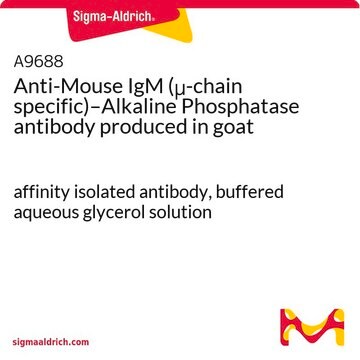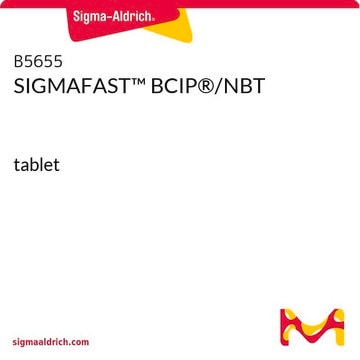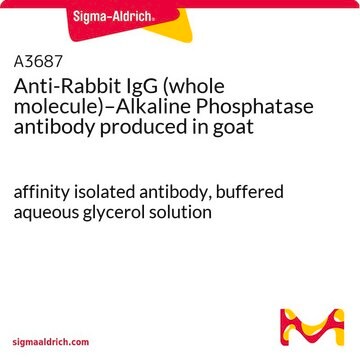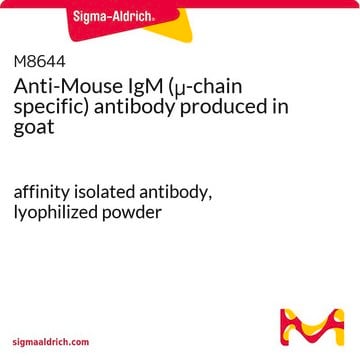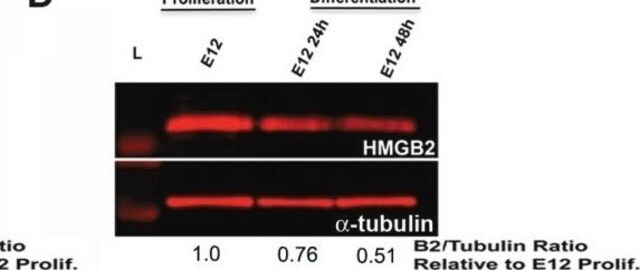A0162
Anti-Mouse Polyvalent Immunoglobulins (G,A,M)−Alkaline Phosphatase antibody produced in goat
affinity isolated antibody, buffered aqueous solution
Sinónimos:
Goat Anti-Mouse Polyvalent Immunoglobulins (G,A,M)−AP
About This Item
Productos recomendados
biological source
goat
Quality Level
conjugate
alkaline phosphatase conjugate
antibody form
affinity isolated antibody
antibody product type
secondary antibodies
clone
polyclonal
form
buffered aqueous solution
species reactivity
mouse
technique(s)
direct ELISA: 1:3,000 using IgG, IgA, IgM
western blot: 1:50 dilution
shipped in
wet ice
storage temp.
2-8°C
target post-translational modification
unmodified
General description
Application
Physical form
Disclaimer
¿No encuentra el producto adecuado?
Pruebe nuestro Herramienta de selección de productos.
Storage Class
10 - Combustible liquids
wgk_germany
WGK 2
flash_point_f
Not applicable
flash_point_c
Not applicable
Certificados de análisis (COA)
Busque Certificados de análisis (COA) introduciendo el número de lote del producto. Los números de lote se encuentran en la etiqueta del producto después de las palabras «Lot» o «Batch»
¿Ya tiene este producto?
Encuentre la documentación para los productos que ha comprado recientemente en la Biblioteca de documentos.
Los clientes también vieron
Nuestro equipo de científicos tiene experiencia en todas las áreas de investigación: Ciencias de la vida, Ciencia de los materiales, Síntesis química, Cromatografía, Analítica y muchas otras.
Póngase en contacto con el Servicio técnico